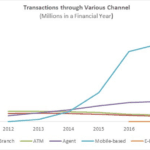Risky Business: How an Innovative Partnership is Addressing Growing Threats to the Coffee Supply Chain
For many smallholder farmers, growing coffee has become a risky business. Plagued by low profitability, high risk and the effects of a changing climate, many farmers struggle to make a profit and earn a living income. With limited access to financing, they are also unable to invest in adaptations that would help overcome these challenges and raise their productivity. As smallholders account for 80% of global coffee production, the constraints they face add up to a significant and direct threat to the entire coffee industry.
To address these challenges, Tropical Farm Management Kenya and Becamo in Honduras – both part of Neumann Gruppe GmbH, a green coffee service group with over 50 companies in 26 countries – have collaborated with Feed the Future Partnering for Innovation, a U.S. Agency for International Development (USAID)-funded program implemented by Fintrac Inc., to make coffee a better business for smallholder farmers and the coffee industry as a whole. With support from Partnering for Innovation, the company is tackling these challenges head-on through NKG Bloom, a global initiative that aims to build a sustainable coffee supply chain by providing farmers with critical opportunities and resources to grow and adapt.
The Challenges Facing Coffee Production
Rapidly changing prices, adverse weather conditions, pests and disease — these shocks and stressors can quickly undo the promise of a successful coffee growing season and severely diminish smallholders’ income and food security. Climate change has worsened many of these challenges, leading to unpredictable weather conditions, from shifting rain patterns to flooding and droughts, and spurring more frequent incidences of pests and disease. It is also reducing the amount of land with the right temperature, light and humidity levels to grow coffee: By 2050, the Inter-American Development Bank estimates that the total land suitable for coffee production will decline by up to 50%.
These impacts are not far out on the horizon; they have already begun. For instance, during the 2019-2020 harvest season, Honduras experienced a significant reduction in its coffee production. There were several reasons for this decline, including low coffee prices that disincentivized investment and led to migration; the return of coffee leaf rust disease; shifting rainfall patterns that hampered flower and cherry development; and the significant damage to coffee beans and infrastructure caused by Hurricanes Eta and Iota. While it wasn’t as severely affected, Kenya also saw high levels of the fungal disease late blight in 2019, which resulted in the loss of mature cherries and significantly lower prices for farmers. And in 2020, increased instances of leaf rust and prolonged rains in the country adversely affected harvesting and processing, as well as flowering for the next season’s crop.
In addition, many coffee cooperatives lack the administrative and financial resources to provide efficient services to their smallholder farmer members. Lack of access to financing, combined with volatile market prices and the seasonality of coffee income, means that many farmers are unable to make the key investments needed to build resilience to shocks. This includes renovating aging farms with more productive disease- and drought-tolerant trees, upgrading infrastructure to significantly reduce water and energy usage, properly fertilizing trees to fortify them against adverse weather, and taking preventive measures to combat pests and diseases.
Confronted with these challenges, it is understandable why farmers can more easily see the risks of coffee production than the rewards. As a result, not only are fewer younger generations assuming control of their parents’ coffee farms, but farmers have increasingly started to abandon their farms in pursuit of higher, more reliable incomes. This is accelerating the graying of the industry: For instance, the average age of coffee farmers working with Neumann Gruppe GmbH is 45 in Honduras and 54 in Kenya.
This has made it more difficult for businesses to manage coffee supply chains in the short term, and has threatened their sustainability in the long term. While production swings are usual for any agricultural crop, the coffee rust crisis is severely impacting production in some parts of Latin America. The Smallholder Livelihoods Facility (a $25 million revolving credit facility that provides needed funds for smallholder farmers and farmer groups) conducted a baseline study commissioned by IDH-The Sustainable Trade Initiative and Neumann Gruppe GmbH, which found that more than 90% of farmers in Kenya and over 70% of farmers in Honduras faced major losses in coffee production in the last three years. And the impacts are not limited to lower production: Farmers are also experiencing shifts in their traditionally steady harvest patterns that can reduce their ability to make just-in-time deliveries to roaster clients and achieve quality standards. At the same time, the specialty coffee segment has been growing, and customers are increasingly asking for more traceability, transparency and sustainability in coffee production – both of which are prompting changes in quality and volume.
Stronger Coffee Farmers, Strong Supply Chains
In response to these challenges, and with support from Partnering for Innovation, Neumann Gruppe GmbH provides smallholders in Honduras and Kenya with a reliable market for their coffee, while strengthening their resilience to climate shocks and fluctuating market prices, and improving their access to critical inputs, training and loans. Key to its approach is the creation of Farmer Service Units embedded in each of its export companies, which are responsible for delivering these comprehensive services. In return, farmers repay any inputs and financing they receive with cash or coffee, enabling the company to earn a margin on bulk inputs purchased and on coffee traded once they reach economies of scale. The company also benefits by securing a stable supply of high-quality coffee with greater resilience to the effects of a changing climate.
By 2024, Becamo aims to reach more than 900 farmers and 800 hectares in Honduras under the renovation program. Additionally, the company is working to establish a nursery with highly resistant varieties using Ecopil, an innovative biodegradable packaging technology that allows seedlings to be planted directly in soil to reduce waste, limit the space needed for plants and foster healthy root development. Neumann Gruppe GmbH also provides a market for these farmers’ crops: It has purchased 5,056 metric tons (MT) of green coffee from 89 cooperatives in Honduras and received 20,783 MT of fresh coffee cherries from 11 cooperatives in Kenya. To scale up this work in Kenya, Tropical Farm Management Kenya will receive funding from AgriFi, a European Union-funded program.
In both countries, support from Partnering for Innovation has also enabled the company to invest in software to improve supply chain management, traceability and reporting. As a pilot effort, selected cooperatives will use the new technology to develop a fully traceable NKG BLOOM brand coffee that commands a premium price and allows customers to track their coffee from farm to cup.
Looking Ahead
Neumann Gruppe GmBH plans to build on the success of its collaboration with Partnering for Innovation, which concluded in 2021. Through NKG Bloom, the company aims to increase the number of Farmer Service Units across its export companies by 2030 and to reach more Kenyan smallholder coffee farmers by expanding its work with cooperatives in the country.
At the core of the partnership is the recognition that coffee farmers are at the heart of Neumann Gruppe GmbH’s business: If they do not succeed, neither does the company. If these solutions are done right, the challenges faced by smallholder coffee growers can be turned into viable opportunities for both the business and the smallholder farmers whose work drives the industry.
Carolin Ehrensperger is Deputy Head of the Sustainable Business Unit at Neumann Gruppe GmBH; Laura Harwig is Director of Feed the Future Partnering for Innovation.
Photo courtesy of The Coffee Trust.
- Categories
- Agriculture, Environment



